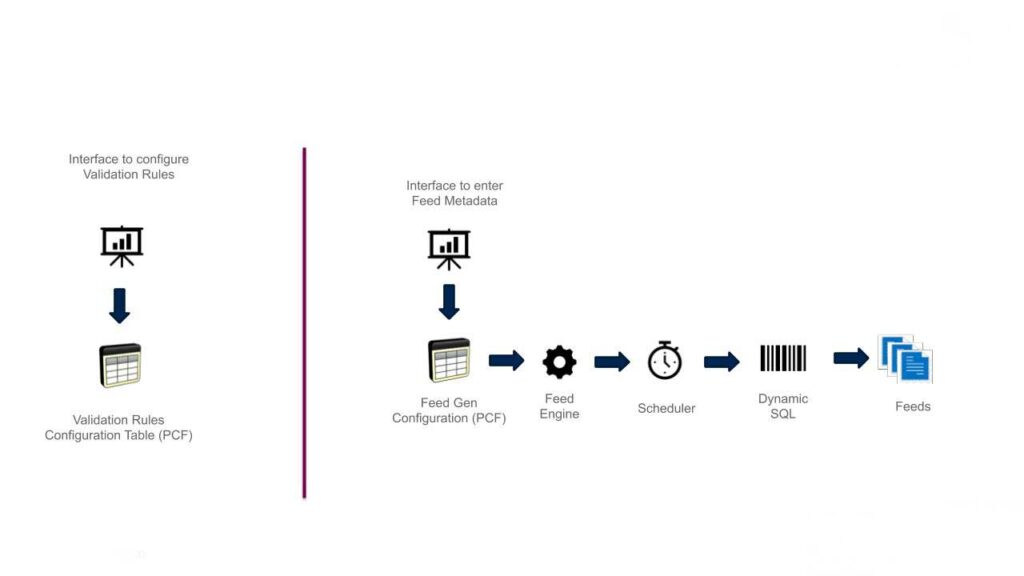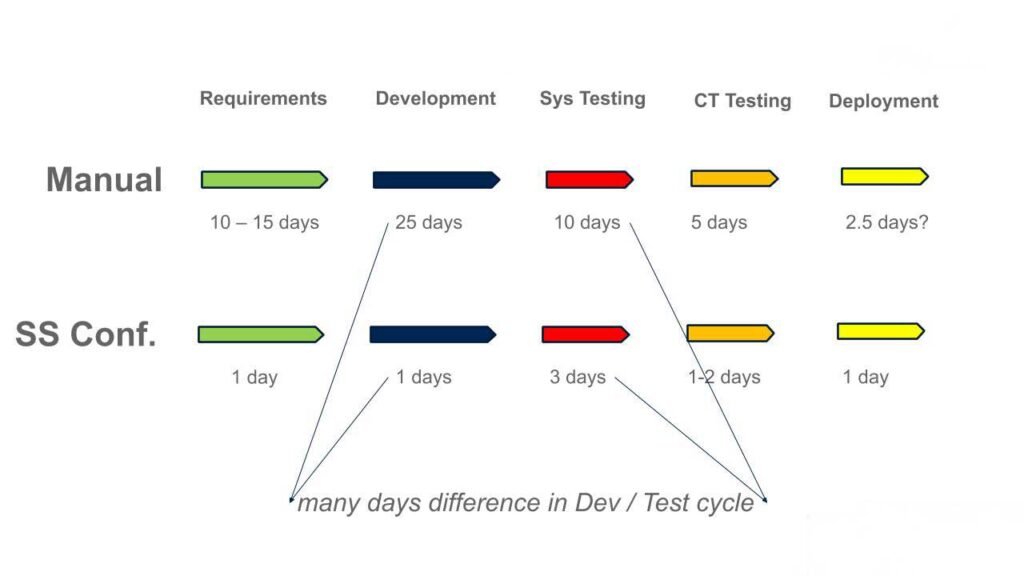DAMAN INNOVATES
Cost Efficient Data Sharing
Through Automation

Share this content
Daman reinvents B2B data sharing capabilities with a self-service automation engine.
The demand for data sharing is higher than ever -- now, it can be cost-effective too.
With the global amount of digital data increasing exponentially, the business world is seeing a surge of data sharing involving customer names and addresses, social media and web traffic, sales and promotions, collaborative R&D, finance, manufacturing activity, inventory levels, supply chain reports, and a host of other data sources made possible by new technology innovations such as IoT that significantly increase data touch points.
To give just one example, an online ticket broker and multiple airlines can share new data every few minutes about ticket requests, available seating, schedule changes, customer queries, and other items. This continual data sharing can optimize ticket sales, support customer satisfaction, encourage repeat sales, facilitate changes in prices and commissions, support growth, and enhance the overall business relationship between the ticket broker and the airlines.
However, the rewards of data sharing require an appropriate level of business investment, and the single biggest cost component in data sharing is the development and support of data feeds among different business entities.
The current approach is a very manual process that demands significant amounts of time, resources and funding from the IT department. The process begins with a data sharing agreement that stipulates what data is being shared and how the data can be used. Creating this agreement often requires outside consultants and legal resources to negotiate data exchange parameters for each customer or partner. New business relationships require new agreements with new feeds. Sometimes a single feed can take months to implement. This is a continual process as new business relationships are formed and existing relationships are refined.
These feeds (files or data exchanges) are then developed by IT staff manually. While there are many tools available in the market to make this process efficient, it still requires expert resources to configure the tools to generate the files or the IT staff to manually code the generation of these files.
Managing these feeds with changes to the data sharing agreements sometimes requires a complete IT support arm. Supporting the tiny IT silos and the IT infrastructure associated with them can run into millions of dollars for some corporations.
Furthermore, when businesses purchase new data applications or scale up their operations, they often need to convert or reengineer their existing data sharing pipelines. This usually entails a full development cycle for the new data feed. Additional changes down the road can take another whole new cycle, adding even more cost and demands on IT resources to manually design, implement and maintain the data sharing pipelines.
Self-service configurations: smart enough to be simple
Ironically, about 80% of data exchange requirements are quite similar and involve relatively minor changes in data feed agreements. However, every change requires manual effort, and all these changes, however small, can add up to significant costs for the IT department.
That’s why Daman has developed an innovative alternative to manually building data feeds for each business relationship.
The Daman solution consists of three main areas:
 A portal that provides efficient self-service. The portal allows the customers and partners to configure their feeds. This configuration is used by the engine to generate the files. Customers and partners go directly to the business’ portal via a protected link without having to go through manually created channels. They sign up for their current feeds or configure changes to their feed as needed, with little or no assistance from IT support. Instead of the business only “pushing out” data, customers and partners can “pull in” the data they need, when they need it, and according to terms agreed upon by all parties.
A portal that provides efficient self-service. The portal allows the customers and partners to configure their feeds. This configuration is used by the engine to generate the files. Customers and partners go directly to the business’ portal via a protected link without having to go through manually created channels. They sign up for their current feeds or configure changes to their feed as needed, with little or no assistance from IT support. Instead of the business only “pushing out” data, customers and partners can “pull in” the data they need, when they need it, and according to terms agreed upon by all parties.
- A code generation engine that generates the code to create the files according to metadata captured by the portal. This Python-based engine reads the metadata and generates the code to create the file. This code is then scheduled to run periodically based on the schedule set by the customer during the configuration and the file generated. (The schedule is also one of the parameters captured.) and the data is sent to the customer or partner according to the predetermined schedule
- A delivery gateway that securely delivers data via multiple protocols (email, FTP, messages, etc.) to the customers and partners.
The benefits of proven innovation
The innovation dramatically lower the cost per feed by replacing hours of labor-intensive, manual work with automated code generation. In effect, this approach delivers many of the benefits of customized data sharing without the high costs.
More specifically, this self-service approach —
 lowers TCO and speeds time to market due to dynamic code generation
lowers TCO and speeds time to market due to dynamic code generation- reduces the cost per feed substantially because it takes advantage of standard configurations
- supports an efficient, structured approach to developing data sharing agreements
- requires less testing because it uses a single code base
- eliminates the need to manage and maintain hundreds if not thousands of pieces of code
- supports scalability with simplified onboarding and optimal change management
- promotes data quality with specific data delivery.
In many ways, business relationships can be strengthened with automated self-service. Businesses can reduce the risk of producing a file that the customer or partner doesn’t want or require. Businesses also expose only the data they want to share, and customers and partners can receive the appropriate data they want without the need to establish new data sharing agreements or require the business to manually develop new feeds.
Backed by over a quarter century of innovation and expertise, Daman can help today’s businesses take full advantage of data sharing with cost-efficient, scalable and flexible solutions designed to meet their rapidly evolving business needs.
Strategy & Architecture
Achieving fundamental realignment of resources with a zero-based mindset with ZBx.
Modernize your Data Supply Chain
Achieving fundamental realignment of resources with a zero-based mindset with ZBx.
Data Democratization
Achieving fundamental realignment of resources with a zero-based mindset with ZBx.
